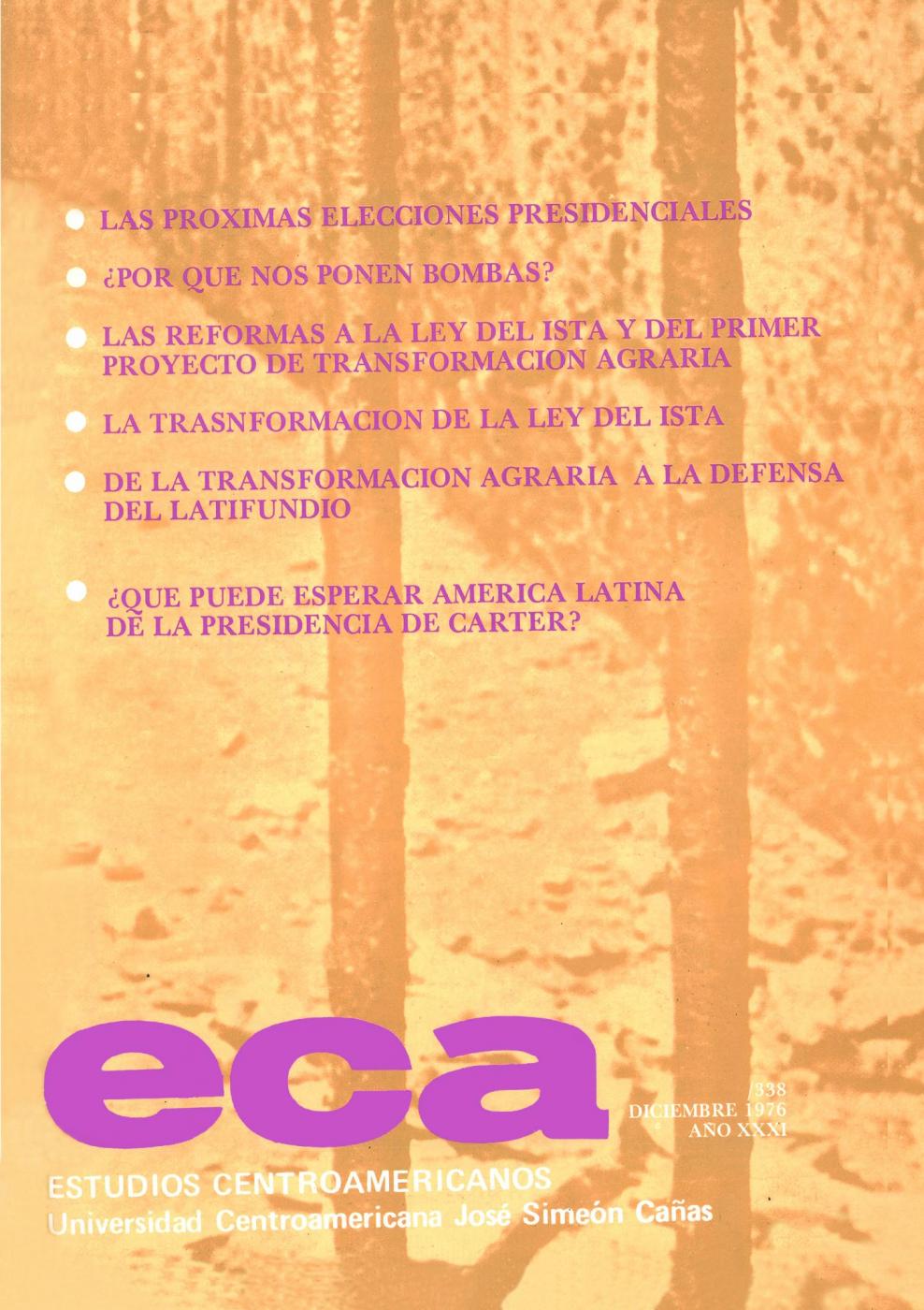Resumen
El presente trabajo analiza la relación entre el financiamiento en materia de educación y la igualdad de acceso estudiantil a nivel superior. Se argumenta que en la mayoría de los países el compromiso por parte de los gobiernos para asegurar la educación gratuita tiene como efecto contradictorio el acentuar las disparidades sociales, aumentando así la brecha entre oferta y demanda, en cuanto a cupo universitario se refiere.
Tales relaciones han sido tomadas a nivel internacional con datos de una muestra de 64 países. Se examinan dos índices relacionando el uno con el otro: a) el grado de eficacia del subsidio de la educación superior, y b) el grado de desigualdad educacional (tal como lo refleja la inclinación de la pirámide educativa). Los resultados demuestran que la brecha entre oferta y demanda, respecto al cupo universitario, es relativamente mayor en los países menos avanzados, registrándose en esos mismos países el grado más elevado de subsidio. La restricción en cuanto a capacidad real a nivel escolar ha creado nuevas opciones de selección (no-económicas), tendientes a restringir el acceso a la educación superior, favoreciendo los criterios invariablemente a los estudiantes de familias adineradas.
El presente estudio considera diferentes medidas de un financiamiento público, capaces de suprimir la contradicción que actualmente prevalece entre educación "gratuita" y las erróneas restricciones de ingreso.
ECA Estudios Centroamericanos, Vol. 31, No. 338, 1976: 773-788.
Referencias
Academy of Athens (1975), Proceedinga of the Academy of Athena. Volumen 50.
Andoh, A. S. Y. (1968), ''The University of Science and Technology, Kumasi, 1952-1968", Kumasi University, (mimeo).
Blaug, M. (1973), Education and the Employment Problemin Developing Countries, I. L. O.
Bowles, F. (1965 ), "Senegal" in Access to Higher Education, Volumen II, UNESCO.
Busch, G. (197S), "lnequality of educational opportunity by social origin, in higher education", en Education, lnequality and life chances, O.E.C.D., Volumen L, pp. 159-81.
Dougherty, C.R.S. and Psacharopoulos, G. (1976), "Measuring the cost of misallocation of investment in education", Department of Economics, London School of Economics (mimeo).
Edwards, E.O. and Todaro, M.P. (1973), "Educational demand and supply in the cóntext of growing unemployment in less developed countries", World Development, Vol. l, Nos. 3 y 4.
Fields, G.S. (1975), "Higher education and income distribution in a lesa developed country", Oxford Economic Paper, (Julio).
Hansen, W. Lee and Weisbrod, B. (1969), Benefits, Cost and finance of Public Higher education, Markham.
Hartman, R.W. (1970), "A comment on the Peckman-Hansen-Weisbrod controversy", Joumal of Human Reaourcea.
Hidaka, D. (1965), "Japón", inacces to Higher education, Volumen 11, UNESCO.
Hight, J.E. and Pollock, R. (1973), "lncome distribution effects of higher education expenditures in Califomia Florida and Hawaü", Joumal of Human Resources (Verano).
I. B. R. D. (1971), World Tables.
I. B. R. D. (1974), Education (Sector Working Paper).
I. L.O. (1971), Matching Employment Opportunities and Expectations: A Programme of Action for Ceylon. I. L. O.
I. L. O. (1973), Employment and Income Policies for Iran.
Jallade, J. P. (1974),Public Expenditures on Education and Income Distribution in Colombia, Staff Occasional Papers, No. 18, I. B. R. D.
Lauwerys, J.A. (1965), "United Kingdom", in Acces to Higher Education, Volumen II, UNESCO.
Legrand, L. (1969), "France" in Examinations. The World Yearbook of education (1969), J. A. Lauwerys and D. S. Scanlon, eds. Evans.
Marin, A. and Psacharouolos, G. (1976), "Schooling and income distribution", Review of Economics and Satatistics, (En prensa).
Miklius, W. (1975), "The distributional effects of higher education: A comment", Higher &lucation, No. 4, pp. 351-55.
Norman, S. (1976), "Oemand and supply in the higher education sector: The Case of Israel'', Tesis inédita para doctorado, lnstitute of Education, University of London.
Orellana, E. and Grassau, E. (1965), "Chile" en Access to Higher Education, Volumen II, UNESCO.
Parkyn, G.W. (1965), "New Zealand", en Acces to Higher Education, Volumen II, UNESCO.
Pechman, J. AJ. (1970), "The distributional effects of public higher education in California", Joumal of Human Resources, (Verano).
Psacharopoulos, G. (1972), "Rates of retum to investment in education around the World", Comparative Education Review, (Febrero).
Psacharopoulos, G. (1973), Returns to education: An Intemational Comparison, Elsevier.
Psacharopoulos, G. (1976), "lnvestment in education and equality of opportunity", in K. Alexander (ed), Public Schools: Educational and Economic Needs. University of Florida Press.
Psacharopoulos, G. (1976a), Eamings and Education in O. E. C. D. Countries.
Psacharopoulos, G. (1976b), "Measuring the welfare effecs of educational policies", in VI Halberstadt and AJ. Culyer, Puclic &:onomics and Human Resourcea, Cujas.
Psacharopoulos, G. (1976c), "Earnings determinants in a mixed labour market", in W. van Rijckeghem, ed., Employment Problems and Policies in Develpoling Countries, Rotterdam University Press.
Psacharopoulos, G. and Williams, G. (1973), "Public sector earnings and educational planning", Intemational Labour Review, (Julio).
Robbins Committee on Higher Education (l 963), Higher ducation, H.M.S.O.
Rogers, D. C. (1972), "Student loan programmes and retums to investement in higher levels of education in Kenya", Economic Development and Cultural Change, (Enero).
Rogers, D. C. (1971), "A brief description of student loan programmes in Latin America", A. I. D. (Marzo), (mimeo).
Saiyidain, K.G. and Gupta, H.G., (1965), "India", in Acces to Higher education, Volumen II, UNESCO.
Sobrinho, J.H. (1972), "Access to the Federal University of Bahía, Brazil and employment of graduates", paper presented at the Seminar Planning the Oevelopment of Universities, Intenational lnstitute of Educational Planning, (mimeo).
Teixeira, A.S. (1965), "Brasil", in Access to higher Education, Volumen II, UNESCO.
UNESCO, (1970), Statistical Yearbook 1970.
UNESCO, (1973), Statistical Yearbook 1973.
United Nations, (1974), Yearbook of National Account Stadistics 1974, Volumen IIi.
Wong, R.H.K., (1969), "Educ¡,tional effects of examination on pupils, teachers and society", in Examinations.
World Yearbook of Education 1969, Evans.

Esta obra está bajo una licencia internacional Creative Commons Atribución-NoComercial-SinDerivadas 4.0.
Derechos de autor 1976 ECA. Estudios Centroamericanos





